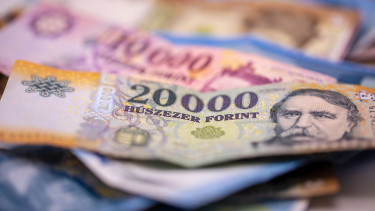Hungarian ultra-triathlete makes history

A different kind of performance
We have a tendency to measure performance by numbers. The rise in share prices, the horsepower of a car, the wealth of corporate leaders, and so on. Yet, performance is not always material. In sports, for instance, it generally has to do with muscles, reflexes or other skills. And sometimes it remains quite unfathomable, something ordinary people cannot put a finger on. When you read about astronomical figures, some data about the universe, and it just blows your mind and you just cannot cope with the sheer size of it all.
A few human beings have the same capacity as the universe in this sense. Their performance awes us. Their achievement may be right in front of us, expressed in words and numbers, but we will probably never truly comprehend how they did it, and what it takes to do it.
When hard is way not enough
Ferenc Szőnyi finished 2nd at the Double Deca Ultra Triathlon race in Mexico on Sunday. To put even this into perspective, only 14 people had the courage and confidence even to start the race. By Tuesday morning, only two of them finished it.
Szőnyi is the only person in the world that completed this unbelievably demanding race twice. So what is the big deal? It’s the distances.
For some of us it seems an awfully taxing workout even to climb the stairs to the 3rd floor. Or to play football with a toddler, or to jog for half an hour or a few kilometres. Or to bike a couple of blocks to the grocery store for a sugar-free soft drink. Or to take a few steps in Lake Balaton, get out of the waist-deep water and swim 50 meters.
And then there are these odd races where people do not settle for just running or just cycling or just swimming. No, they want to do all these strange activities at once. Okay, not at once but one after another. Without rest. May the fastest win. You don’t have to be the fastest swimmer, but if you’re last to waddle out of a pond, the sea or a pool, you’d better hurry up changing into your cycling gear, get in the saddle and start pushing those pedals as if your feet were the pistons in a muscle car. Or if you don’t succeed in that race, you need to run really fast to catch up with the others.
This sport is called a triathlon. One of the toughest races on the planet: 3.86 kilometres of swimming, 180.25 km cycling, and 42.2 km running. Yup, the latter is the distance of a marathon race, the fastest official time for which is 2:01:39 by the way. This record was set by Eliud Kipchoge of Kenya in Berlin in 2018. He has just broken his own record with 1:59:40 in Vienna, but that time doesn’t count for record purposes because standard competition rules for pacing and fluids weren’t followed.
But back to triathlons. The record there was set by Jan Frodeno of Germany at 7:35:39 in Germany in 2016. But these distances are not enough for everyone. Some like it hot, or in this case longer.
For these odd (super)humans they invented double, triple, quadruple, quintuple, deca, double deca and even triple deca triathlons.
"Nothing hurts anymore, I don't undestand why."
Szőnyi’s Double Deca Ultra Triathlon race distances were: 76 km swimming, 3,600 km cycling, 844 km running.
The environment in Mexico was not the most amicable to say the least.
Ferenc ‘The Racemachine’ Szőnyi started his 76,000-meter swimming in a 50-meter pool. According to his race diary, he was hoping he wouldn’t have to swim by himself, but since he is a slow swimmer, he eventually had to. Not in an empty pool, but without a competitor to follow. The pool was not empty at all, there were people splashing about in the adjacent lanes.
He got a gut infection during the race, and was weakened by diarrhea, or ‘Montezuma’s revenge’. After a few days, the organisers told them the swimming pool had to be drained and its water replaced. The future was bleak, but Szőnyi demanded to go continue. They found him a 25-metre pool which was only 1.1-metre deep and its temperature was 28 degrees Celsius. That’s is an extremely shallow pool and its temperature is high even for short-distance swimming, let alone for eight kilometres that Szőnyi had left. At this point, the others drop out, it takes Szőnyi four more agonising hours to complete the first stage.
He starts cycling running a fever and his diarrhea is killing him. He loses about six kilograms by the end of the third day. The athletes are weathered by scorching afternoons, rains and storms on the open, 7km track, “bones break”. Tires are punctured, four in a single night for Szőnyi, courtesy of tree with thorns.
He starts running the 20 marathons (!) 179 km behind Christian Mauduit (France), but he is not giving up. Of course not.
“I don’t want to get injured. I don’t, the daily 100 [km] seems okay, and then it rains and again […] wildly hot in the afternoon. […] It is taking so slow. I make peace with being second. […] new pains all the time. Left hip then the bones of my feet. […] due to my slow pace a blister is developed on my heel […] I give it rest in sandals for a few laps. Christian is done, I still have […] I’m chipping away at the distance. Rains every day. Last marathon, ten more laps, and it’s hot, I cannot run it at once, too bad. Last lap, flag, and nothing hurts anymore, I don’t understand why.”
“No one on this planet has ever completed two double decas. Only our spirits cannot be broken ever, right?”
The 55-year-old Racemachine completed the race in 522 hours 48 minutes 14 seconds. He slept two to three hours a day for three weeks.
Szőnyi, a resident of Komárom, northwest Hungary, was over 40 when he tried himself at sports. Cycling was his ticket and he was well over 40 when he signed up for his first triathlon.
He is the epitome of endurance and sheer will. Hat's off to this man!

Cover photo by Getty Images








